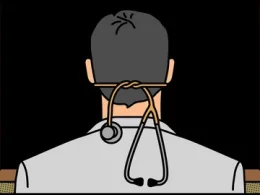Introduction
When the one you love starts treatment with Zonisep 100 mg (zonisamide), it can be both promising and daunting. Zonisamide has real promise for seizure control, but it is a journey that demands patience, consistency, and good support.
As a family member, friend, or caregiver, you play an important role. From knowing how Zonisep 100 mg operates to identifying side effects and offering encouragement, you can assist your loved one in adapting easily to this treatment.
This comprehensive guide discusses all caregivers need to know about caring for a loved one initiating Zonisep 100 mg therapy, including practical advice, safety measures, and FAQs.
Understanding Zonisep 100 mg
Before providing support, it’s helpful to know the basics:
- What it is: Zonisep 100 mg is an antiepileptic medication used for treatment of focal (partial) seizures in adults.
- How it works: It stabilizes abnormal brain activity by preventing sodium and calcium channels and augmenting inhibitory neurotransmission.
- Why it matters: Adherence to Zonisep 100 mg can decrease seizure frequency, enhance quality of life, and allow patients to gain independence.
Emotional Support During the First Weeks
It may be daunting to start any seizure drug. Your loved one might fear side effects, changes in lifestyle, or if the medication would be effective.
Ways you can help:
- Listen without judgment when they express concerns.
- Offer reassurance that side effects often improve with time.
- Encourage open communication with their doctor.
- Remind them they are not alone in their journey.
Helping with Medication Adherence
Missing doses can significantly affect Zonisep 100 mg effectiveness. As a caregiver, you can:
- Use pillboxes or medication reminder apps.
- Set daily alarms for dosing times.
- Track missed doses and discuss them with the doctor.
- Gently check in to ensure medication routines are followed.
Recognizing the Signs of Effectiveness
Caregivers play an important role in observing changes after starting Zonisep 100 mg. Positive signs may include:
- Fewer seizures or reduced severity.
- Shorter recovery times after seizures.
- Improved mood, focus, or daily activity participation.
Keep a seizure diary to document progress.
Monitoring for Side Effects

Like all AEDs, Zonisep 100 mg may cause side effects. Common ones include:
- Drowsiness or dizziness.
- Loss of appetite.
- Weight changes.
More serious but rare side effects to monitor:
- Severe rash.
- Mood changes or suicidal thoughts.
- Kidney stones.
- Metabolic issues.
Caregiver tip: Report new or worsening symptoms promptly to the doctor.
Lifestyle Adjustments to Support Treatment
1. Hydration
Encourage plenty of fluids—Zonisep 100 mg may increase kidney stone risk.
2. Sleep
Help your loved one maintain consistent sleep patterns, as sleep deprivation can trigger seizures.
3. Stress Management
Promote relaxation through light exercise, meditation, or hobbies.
4. Alcohol & Caffeine
Support reducing or avoiding these, as they can interfere with seizure control.
5. Healthy Diet
Assist with balanced meals that support brain and overall health.
Safety Planning for Seizure Emergencies
Caregivers should prepare for possible seizures, especially in the first few months:
- Learn first aid for seizures.
- Keep emergency contacts accessible.
- Know when to call an ambulance (e.g., seizure lasting over 5 minutes).
- Share seizure response plans with teachers, coworkers, or close friends.
Encouraging Independence While Providing Support
While monitoring is essential, balance it with respecting independence. Encourage your loved one to:
- Track their own symptoms.
- Ask questions during doctor visits.
- Take responsibility for part of their care routine.
Communication with Healthcare Providers
You can support by:
- Attending appointments together.
- Bringing seizure diaries and medication notes.
- Asking questions about treatment goals and side effect management.
- Advocating for your loved one if they feel overwhelmed.
Addressing Emotional and Social Challenges
Epilepsy treatment is not only physical—it affects mental and social well-being too. Caregivers can help by:
- Encouraging participation in social activities.
- Helping reduce stigma through education.
- Supporting counseling or support groups if needed.
Building a Long-Term Support System
Over time, your role as a caregiver evolves. Establish:
- A trusted medical team.
- Family or friend support networks.
- Local or online epilepsy communities.
Long-term stability requires both medical consistency and strong emotional support.
Conclusion
More than merely juggling medication schedules does caring for a loved one beginning Zonisep 100 mg treatment involve—it’s about giving emotional reassurance, ensuring safety, and building healthy lifestyle routines. Caregivers can make a tremendous difference by remaining vigilant, organized, and empathetic throughout the course of treatment.
With cooperation, perseverance, and ongoing medical direction, loved ones can assist their families in realizing improved seizure control, autonomy, and quality of life with Zonisep 100 mg.
FAQs About Supporting a Loved One on Zonisep 100 mg
Q1: How long does it take for Zonisep 100 mg to show results?
Improvement may be noticeable within weeks, but full effectiveness can take months.
Q2: What should I do if my loved one forgets a dose?
Follow the doctor’s instructions—never double the dose without guidance.
Q3: Can caregivers adjust the dose if seizures continue?
No. Only the prescribing doctor should adjust Zonisep 100 mg dosing.
Q4: How can I tell if side effects are serious?
Severe rash, mood changes, or prolonged fatigue warrant immediate medical attention.
Q5: Should my loved one stop Zonisep 100 mg if seizure-free?
Never stop abruptly—seizures may worsen. Always consult a neurologist.
Q6: What lifestyle habits support seizure control with Zonisep 100 mg?
Adequate sleep, hydration, stress management, and medication adherence.
Q7: Can Zonisep 100 mg be taken with other medications?
Some drug interactions are possible—always inform the doctor about all medicines.
Q8: Is driving safe after starting Zonisep 100 mg?
Restrictions vary—most patients must remain seizure-free for a set period before driving.
Q9: How can I emotionally support my loved one?
Be patient, listen actively, and encourage open communication about challenges.
Q10: Are there community resources for caregivers?
Yes—epilepsy foundations and online forums offer valuable education and support.












